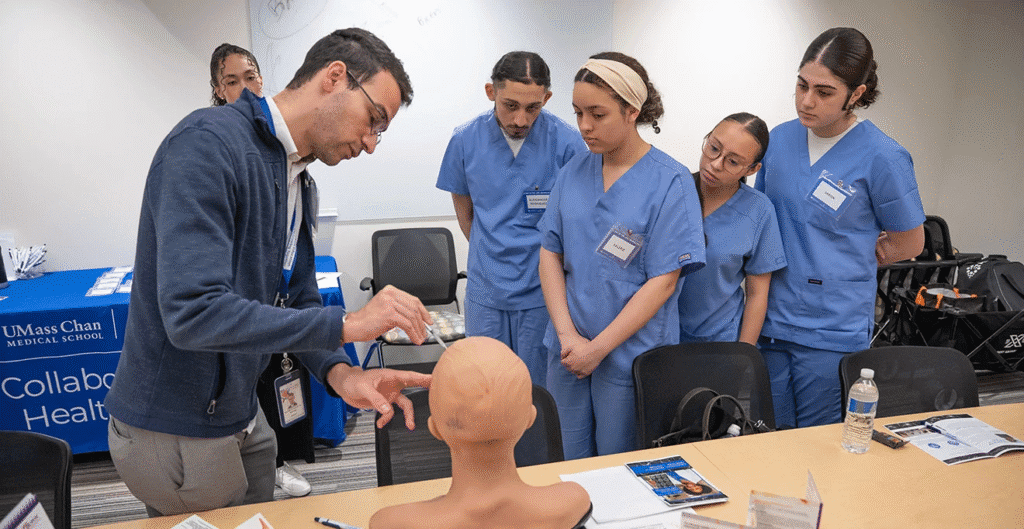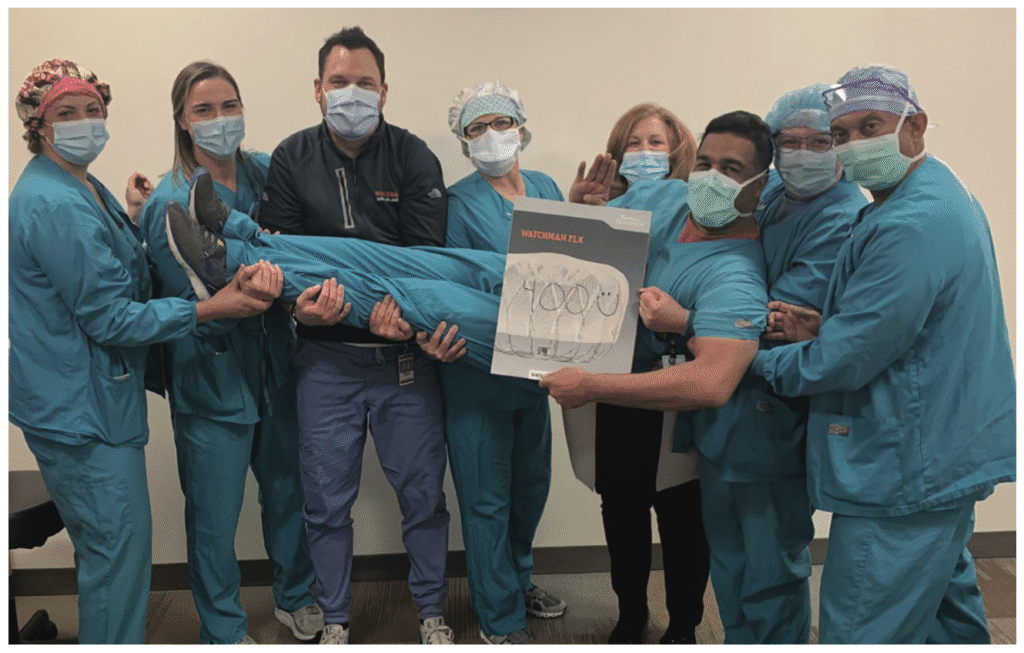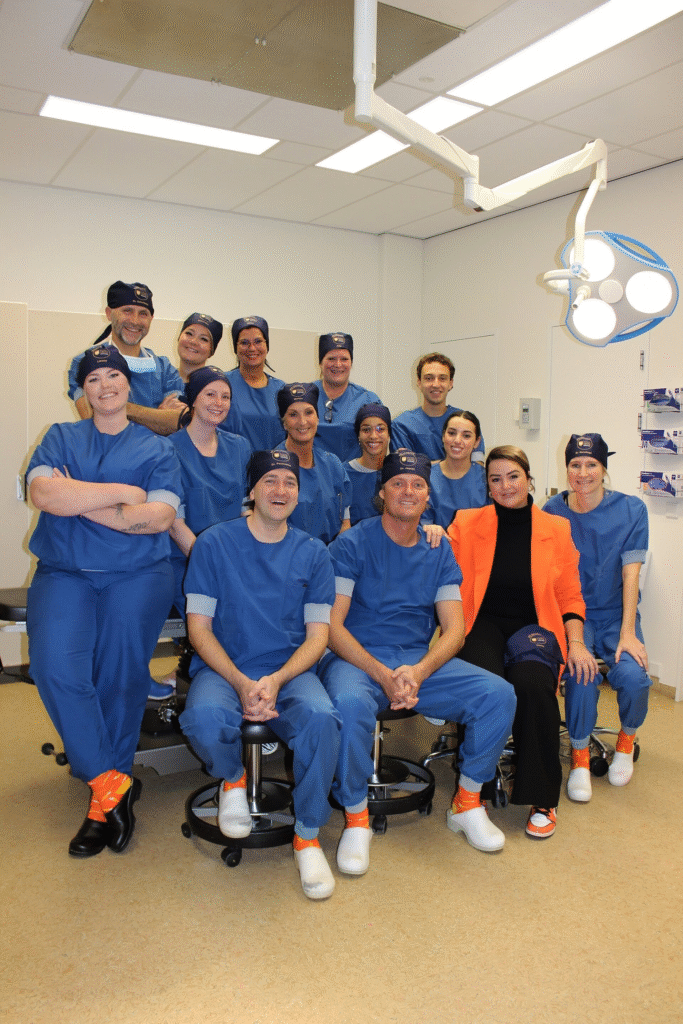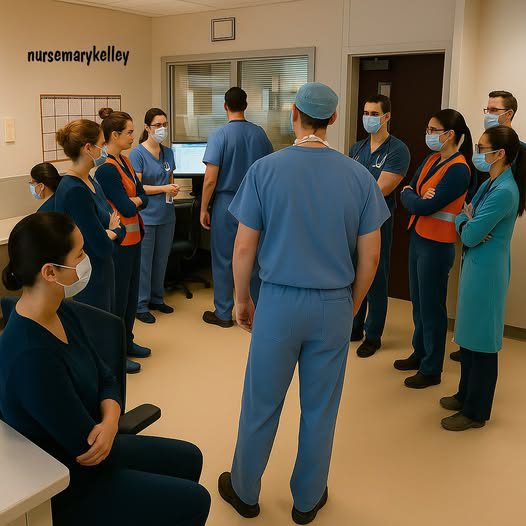I. The Sound of Courage in Quiet Places
Hospitals don’t have a single heartbeat — they have thousands.
And if you listen closely, beneath the hum of machines and footsteps on linoleum, you’ll hear the rhythm of courage.
It’s the sound of a nurse at 3 a.m., adjusting an IV for the third time, whispering, “You’re okay, I’m right here.”
It’s the sound of compassion spoken in soft tones, even when exhaustion steals every ounce of strength.
It’s the sound of humanity — steady, selfless, and unseen.
Nurses don’t wear capes.
They wear scrubs that smell like disinfectant, carry bruises from endless shifts, and smile through pain because someone else’s comfort depends on it.
They are the heart that keeps the world alive — yet too often, their worth is measured by numbers, not by impact.
II. “If You’ve Never…” — A List That Breaks the Heart
A viral post recently echoed across the internet, written by a nurse named Mary Kelley.
In her words, a quiet revolution began.
“If you’ve never had to whisper ‘It’s okay to let go’ to someone taking their last breath,
you shouldn’t be deciding how much nurses make.”
It wasn’t anger. It was truth.
A truth built from years of exhaustion, compassion, and moments no one should carry alone.
Mary continued:
“If you’ve never wiped the tears off a mother’s face while she cradled her stillborn,
you shouldn’t be deciding how much nurses make.”
“If you’ve never held your bladder for ten hours or skipped meals just to keep your patients safe,
you shouldn’t be deciding how much nurses make.”
“If you’ve never left work covered in bruises, blood, or emotional scars you can’t explain,
you shouldn’t be deciding how much nurses make.”
Each line wasn’t just a sentence — it was a wound that spoke.
And millions heard it, because behind every hospital curtain, this is real.

III. The Hidden Cost of Compassion
Nurses are trained to heal, but rarely taught how to recover.
Every code blue, every failed resuscitation, every goodbye leaves a mark.
They walk through corridors lined with echoes — the laughter of a child who survived, the silence of one who didn’t.
And yet, they return every day, hearts patched with invisible thread.
Compassion has a cost, but it’s one nurses pay willingly — until the world forgets to pay them back.
Some go home after 16-hour shifts only to collapse in their car, crying silently because the weight of grief doesn’t clock out when they do.
Some still dream of patients they couldn’t save.
Some forget what a full meal tastes like, or what sleep feels like when it’s not haunted by alarms.
They are not machines. They are people who give so much of themselves that sometimes, there’s nothing left to give.
IV. The Myth of “They Knew What They Signed Up For”
When people say, “Well, they chose this profession,” they misunderstand everything.
No one chooses to hold a dying stranger’s hand because their family couldn’t make it in time.
No one chooses to get screamed at, kicked, or assaulted while simply trying to help.
No one chooses to risk their mental health, their sleep, their safety, every single day — for a paycheck that barely covers rent.
Nurses didn’t choose to be underpaid.
They chose to care — and that choice should have earned them more than exhaustion.

V. The Anatomy of a Shift
Let’s walk through a single shift — not as a schedule, but as a story.
6:45 a.m. – The nurse arrives early, hair tied back, coffee untouched. The night shift is leaving, faces pale and heavy. Report is short: two post-ops, one new admission, one unstable.
7:00 a.m. – Gloves on. The day begins. Blood pressures, medications, smiles. “How did you sleep?” The answer is always the same: “Not much.”
8:15 a.m. – A patient refuses meds. Another is in pain. Someone else’s family demands answers. The nurse apologizes for delays that aren’t their fault.
10:00 a.m. – No bathroom break yet. Coffee cold. Charts piling. Phone ringing. A monitor alarm screams — a patient is crashing.
10:03 a.m. – Time slows. Everything becomes instinct. Code called. Chest compressions. IV access. Team shouting numbers. Sweat, adrenaline, prayer.
10:15 a.m. – The line goes flat. Silence.
The nurse holds the patient’s hand and whispers, “It’s okay to let go.”
10:30 a.m. – The nurse walks to the next room, forces a smile, and says, “Good morning, how are you feeling today?”
And the world keeps spinning — because it has to.
That’s what courage looks like when it’s quiet.
VI. When the System Fails the Caregivers
Nurses aren’t leaving because they’ve stopped caring.
They’re leaving because caring has become unbearable inside a system that forgets its humanity.
Understaffed units mean one nurse managing ten, twelve, sometimes fifteen patients.
It’s not “stretching resources.” It’s gambling with lives.
When nurses raise concerns, they’re often labeled as “complainers.”
When they collapse from burnout, they’re told to “take a day off.”
When they resign, the world calls them “ungrateful.”
But the truth is: the system broke them before they broke away.

VII. A Crisis on the Horizon
By 2030, the global nurse shortage could exceed one million.
This isn’t just a statistic — it’s a red alarm for every household.
Because when your child spikes a fever at midnight, when your mother’s heart skips a beat, when your life depends on that call button — it’s not a politician who will come running.
And what happens when there’s no one left to answer?
Imagine hospitals without enough staff to respond to emergencies.
Imagine ICU beds with no one to monitor them.
Imagine a world where compassion is replaced by automation — because the humans who cared the most couldn’t afford to stay.
That’s not a dystopia. That’s tomorrow, if nothing changes.
VIII. “We See People — You See Numbers”
In boardrooms, nurses are line items in a budget.
In reality, they are lifelines.
Every “cost-saving measure” that cuts staff is a wound on patient safety.
Every dollar saved is a heartbeat risked.
And yet, the people who decide nurses’ pay have never stood in a trauma bay soaked in blood, never whispered to a dying child, never heard the sound of a mother breaking.
How can you put a price on empathy?
How can you quantify comfort?
How can you reduce humanity to a line on a spreadsheet?
Nurses don’t see patients — they see people.
The grandfather who tells jokes between oxygen masks.
The teenager terrified before surgery.
The widow who still asks for her late husband’s blanket.
Each one becomes a story, not a statistic.

IX. The Emotional Toll of Being Strong Every Day
There’s a special kind of fatigue that comes from pretending you’re okay while holding everyone else together.
Nurses are taught to “stay professional.” To compartmentalize grief, to maintain composure.
But you can’t witness suffering for years without absorbing it.
Some cry in empty break rooms.
Some drive home in silence, hands trembling on the steering wheel.
Some simply go numb — not because they don’t care, but because caring too much hurts.
And still, they show up the next day.
That’s what strength looks like when it’s born from love.
X. What Respect Should Really Mean
Respect isn’t free coffee on Nurses Week.
It’s not hashtags or T-shirts.
It’s fair pay, safe staffing, mental health support, and a voice in decision-making.
It’s acknowledging that nurses are not replaceable labor — they are the foundation of healthcare.
To respect nurses means to listen when they say they’re drowning.
To respect nurses means to value their judgment, not dismiss it.
To respect nurses means to see their humanity, not just their productivity.
XI. Why Many Choose to Leave
It’s not about money alone. It’s about dignity.
Many nurses leave bedside care for travel contracts or non-clinical jobs because the system has made it impossible to survive otherwise.
They’re blamed for “chasing money,” but the truth is, they’re chasing peace.
Peace from moral injury.
Peace from exhaustion.
Peace from a system that forgets gratitude once the crisis ends.
They don’t stop being nurses when they leave — they carry that identity forever.
But leaving is sometimes the only way to save what’s left of themselves.

XII. What Happens When a Nurse Breaks
The world expects nurses to be endlessly strong — but even angels fall.
When compassion fatigue hits, it feels like drowning in silence.
When PTSD creeps in, it looks like nightmares of alarms and unresponsive patients.
When depression sets in, it whispers, “You’re not doing enough,” even after 18 hours on your feet.
And yet, mental health care for nurses remains neglected, stigmatized, and underfunded.
We forget that to heal others, nurses must first be allowed to heal themselves.
XIII. The Moments That Define the Calling
Let’s pause for the stories that never make headlines.
The Goodbye Nobody Saw:
A nurse stays after her shift because a dying man’s family didn’t make it in time. She holds his hand until the monitor goes flat, whispering prayers into the silence. No one thanks her. She doesn’t need it — she just couldn’t let him go alone.
The Miracle in the NICU:
A premature baby barely bigger than a hand clings to life. For weeks, a nurse sings softly during feedings. The baby survives. Two years later, the parents return — the child runs into her arms. “She knows your voice,” the mother says.
The Panic and the Calm:
A patient’s heart stops. Chaos erupts. The nurse moves like water — fast, precise, fearless. Within minutes, a heartbeat returns. The family never sees the tremor in her hands after it’s over.
The Hidden Wounds:
A nurse removes her gloves, revealing small scars — from needles, from stress, from days that demanded too much. She smiles anyway. Because tomorrow, she’ll do it again.
XIV. Why Society Should Care Now, Not Later
When the last nurse walks away, healthcare collapses.
Not slowly — instantly.
It’s not doctors or machines that sustain the pulse of medicine.
It’s nurses — the ones who notice the subtle change in breathing, the shift in skin tone, the flicker of fear in a patient’s eyes.
Every community needs them.
Every family depends on them.
Every life at some point will rest in their hands.
If we continue to undervalue nurses, we’re not just disrespecting them — we’re endangering ourselves.

XV. The Legacy of a Nurse
Ask a nurse what keeps them going, and they’ll rarely say “the money” or “the recognition.”
They’ll say something like:
“When I held that baby for the first time.”
“When a patient said thank you after a long fight.”
“When I saw someone walk again who wasn’t supposed to.”
“When I knew I made a difference.”
That’s their wealth — the moments no one can take away.
The lives they’ve touched ripple far beyond what anyone sees.
XVI. The Future We Must Build
The nursing shortage is not inevitable — it’s a choice we’re making through inaction.
We can fix it. But we must start with truth.
- Pay them fairly. Compassion doesn’t pay bills.
- Staff them safely. One nurse cannot save ten lives at once.
- Support their minds. Healing others should not mean breaking yourself.
- Listen to their voices. They are experts, not assistants.
If we fail to act, hospitals will fill with machines — efficient but heartless.
If we act now, the future of healthcare can still have a heartbeat.
XVII. A Letter to Those Who Don’t Understand
If you’ve never whispered “It’s okay to let go” to a dying soul,
please don’t decide how much a nurse deserves.
If you’ve never walked home with someone else’s blood on your shoes and their name in your heart,
please don’t say, “It’s just a job.”
If you’ve never spent Christmas in a trauma bay, holding hands with strangers instead of family,
please don’t say nurses “knew what they signed up for.”
If you’ve never cried behind a mask so no one would notice,
please don’t reduce their worth to a number on a payslip.
They are not asking for luxury — only for fairness, respect, and humanity.

XVIII. A Promise to Every Nurse
This article is not just a tribute; it’s a vow.
To every nurse who has ever felt invisible: we see you.
To every nurse who has ever cried in silence: we hear you.
To every nurse who has ever questioned their worth: you are priceless.
The world spins because you show up — tired, hurting, hopeful — and still give love to those who need it most.
You hold hands through pain.
You stand between life and loss.
You keep the light on when the rest of the world goes dark.
So no — this isn’t just a career.
This is the beating heart of humanity itself.
And it deserves to be cherished, not exploited.


